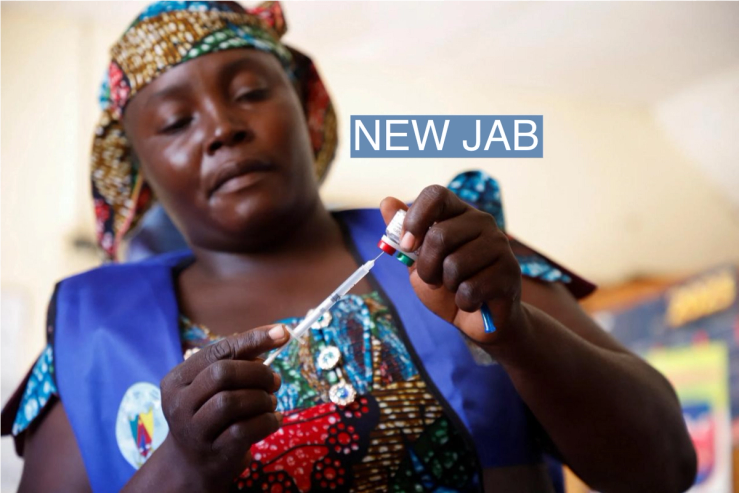The News
Cameroon began the world’s first routine vaccine program against malaria on Monday, a milestone in the decades-long global fight against the mosquito-borne disease, which in Africa kills nearly half a million children under the age of five each year.
The four-dose RTS,S vaccine, which the World Health Organization approved in 2021, is only about 30% effective, but studies showed it cut deaths among young children by 13% and could save tens of thousands of lives when deployed broadly, Science reported.
About 6.6 million children in Cameroon, Ghana, and Kenya are slated to receive the Mosquirix jab – which is made by the British drugmaker GSK – this year and next.
While Mosquirix’s developer said it can only make 15 million doses per year, initially causing concern over whether everyone who needs the shot would be able to get it, the WHO approved a second malaria vaccine in October. Research suggests that shot could be more effective than Mosquirix — and much cheaper to produce.
SIGNALS
Vaccines won’t eradicate malaria, experts warn
Experts cautioned that the vaccine won’t stop malaria because it doesn’t stop the transmission of the disease. The fight against the disease has also been complicated by increased resistance to the drugs used to treat it, and the spread of invasive mosquito species.
Getting vaccinated is “not going to replace bed nets and spraying insecticides,” John Johnson with Doctors Without Borders told The Associated Press after the second malaria vaccine was approved last year. But stacking prevention measures is extremely effective — one UK-led study estimated that using mosquito nets, malaria tablets, and the vaccine together gives children 90% protection against malaria.
Funding hurdles may prevent vaccine from reaching millions of children
After funding the development of RTS,S for two decades, the Bill and Melinda Gates Foundation decided in 2022 not to support the vaccine’s rollout directly, citing the vaccine’s high price, low efficacy rates, and limited supply, saying it will instead focus on improving known prevention measures such as bed nets and insecticides.
It added to a number of funding and commercial hurdles that have hindered GSK in producing the millions of doses the WHO says are needed in Africa, where a child dies from malaria every minute, Reuters reported.
While COVID vaccination programs showed how fast development and distribution can happen with enough funding and political will, malaria is “a disease of the poor, so it’s not been that appealing in terms of the market,” Corine Karema, chief executive of the nonprofit RBM Partnership to End Malaria, told the outlet.
Vaccine in hand, nations still face distribution hurdles
Health workers in Cameroon told Reuters that many parents were unaware of the new vaccine – which has taken around 40 years to develop – while others were hesitant to allow their children to receive it. “I didn’t know it existed,” one mother told the outlet.
Experts at a briefing from WHO, the Centers for Disease Control, and other organizations said they were engaged in extensive community outreach to spread the word about the vaccine and assuage any fears. “We need messaging, we need communication, and we need to use trusted voices,” the CDC’s Africa division head said Monday.



